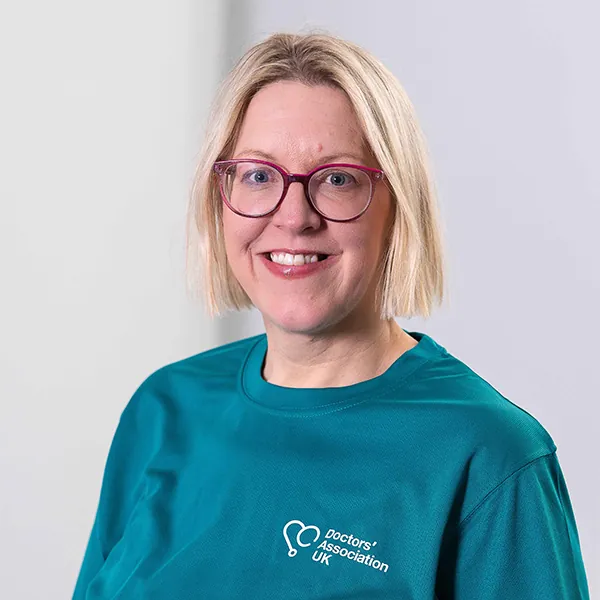The co-chair of the Doctors’ Association UK (DAUK) has told national radio listeners that the roll-out of physician associates (PA) is blurring the lines between doctors and non-doctors.
Speaking to Tom Swarbrick on LBC, Ms Helen Fernandes said it would ‘compromise patient safety and care’.
DAUK is calling for an immediate pause on the expansion of PA anaesthesia associate (AA) roles, and is opposed to Government plans for the General Medical Council (GMC) to regulate them.
Ms Fernandes has called for a motion of regret on the legislation for the regulation of Pas and AAs, which is due to go before the House of Lords.
She told LBC listeners: “The Doctors’ Association UK feels very strongly that the regulation of PAs and AAs is a step in wrong direction.
“It will blur the lines between doctors and non-doctors, which PAs and AAs essentially are, compromising patient safety, patient care and just confusing the public in general.
“A patient should know who they’re seeing and should know the training and backgrounds of the individual they’re seeing.”

DAUK co-chair Ms Helen Fernandes
Ms Fernandes said that while PAs can and do ‘contribute valuably to patient care’, they are not trained to the level of doctors
She said: “Physician associates are supposed to introduce themselves as such, and make it clear to that individual sitting in front of them that they are not a doctor.
“The vast majority of them do, but when you’re a patient sitting in a consultation you don’t actually hear or take in everything that’s being said to you.
“The confusion starts with the name, physician associate.
“Originally this role was named a physician’s assistant. So an assistant delivering in the medical care assistant to a doctor.
“But now associate is used, which is confused with associate specialist, which is a term given to a very senior, highly trained and experienced doctor.
“So they’re blurring there to begin with.”
She added: “If you’re regulated by the GMC, the vast majority of the public will assume you’re a doctor.
“It’s only if you go onto the GMC website and have a close look that you’ll be able to see and understand those doctors’ qualifications, if you know what’s written on a GMC log for a doctor.
“Again we have this blurring that PAs and AAs will sit alongside doctors on the GMC register, and it’s only when they’re looked at with scrutiny will a patient be able to say they haven’t seen a doctor today, they’ve seen a PA.”
Ms Fernandes concluded her interview by questioning whether the roll-out of PAs and AAs gave the NHS and the public value for money.
She said: “If you look at the funding that’s been given to GP practices, what’s called the ARRS funding. That funding is to be used for non-doctor roles.
“They can’t use that funding to employ GPs, but they can employ PAs.
“There’s a recent example of a GP practice in Surrey, which made three GP doctors redundant and replaced them with PAs.
“Why? Because the funding comes from elsewhere and they actually cost half the price of a GP.
“But there’s evidence to suggest the care they deliver is substandard, as in inefficient, because every episode of patient care should be checked by a doctor, should be checked by the supervising GP.
“It’s difficult to see how that is good for the NHS and the public, aside from the fact the Department of Health can fudge its figures in terms of the numbers of people working in a GP practice.”
Listen to Ms Fernandes’s interview on LBC. It starts at around one hour and 25 minutes. The interview is available until Monday 12 February.





